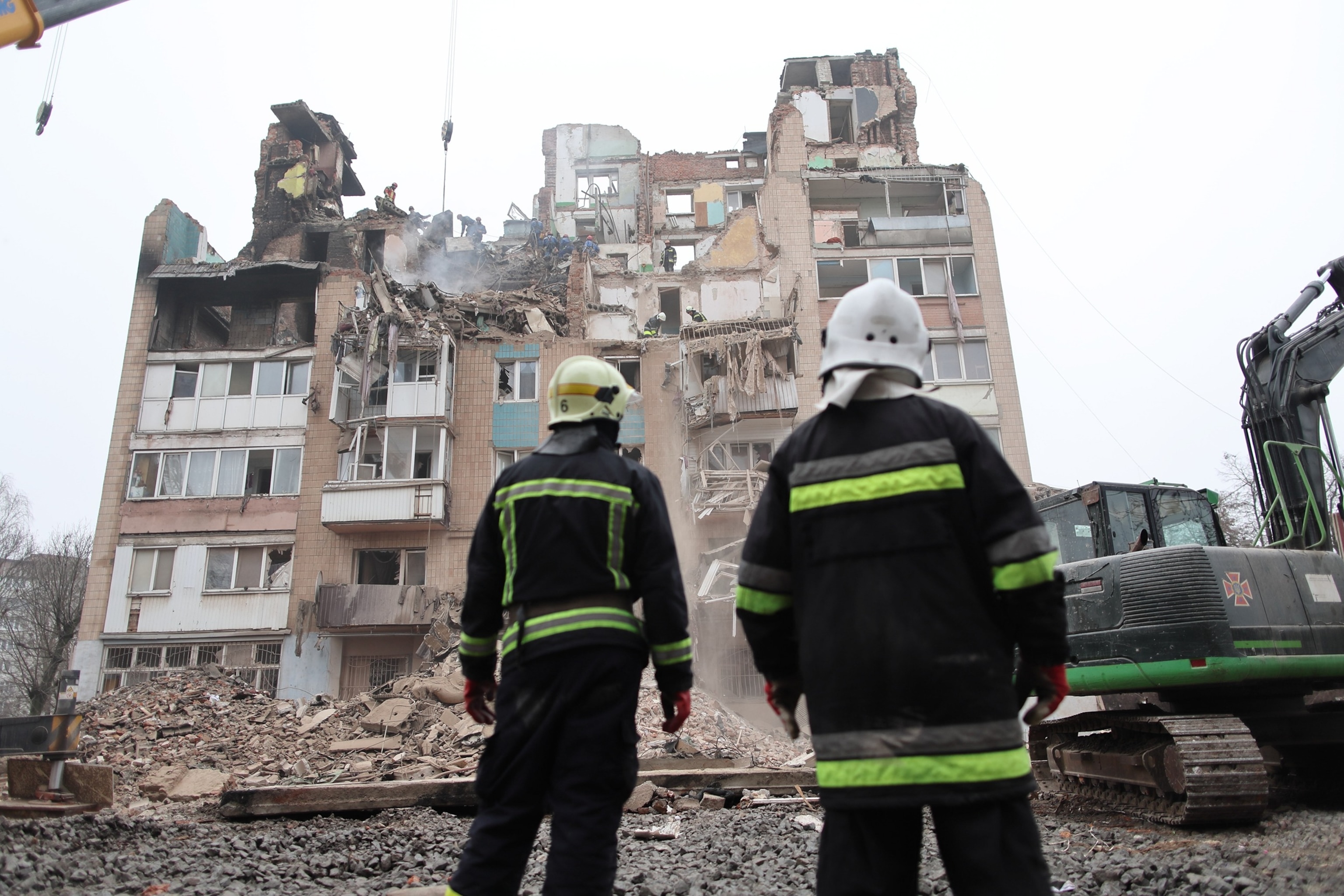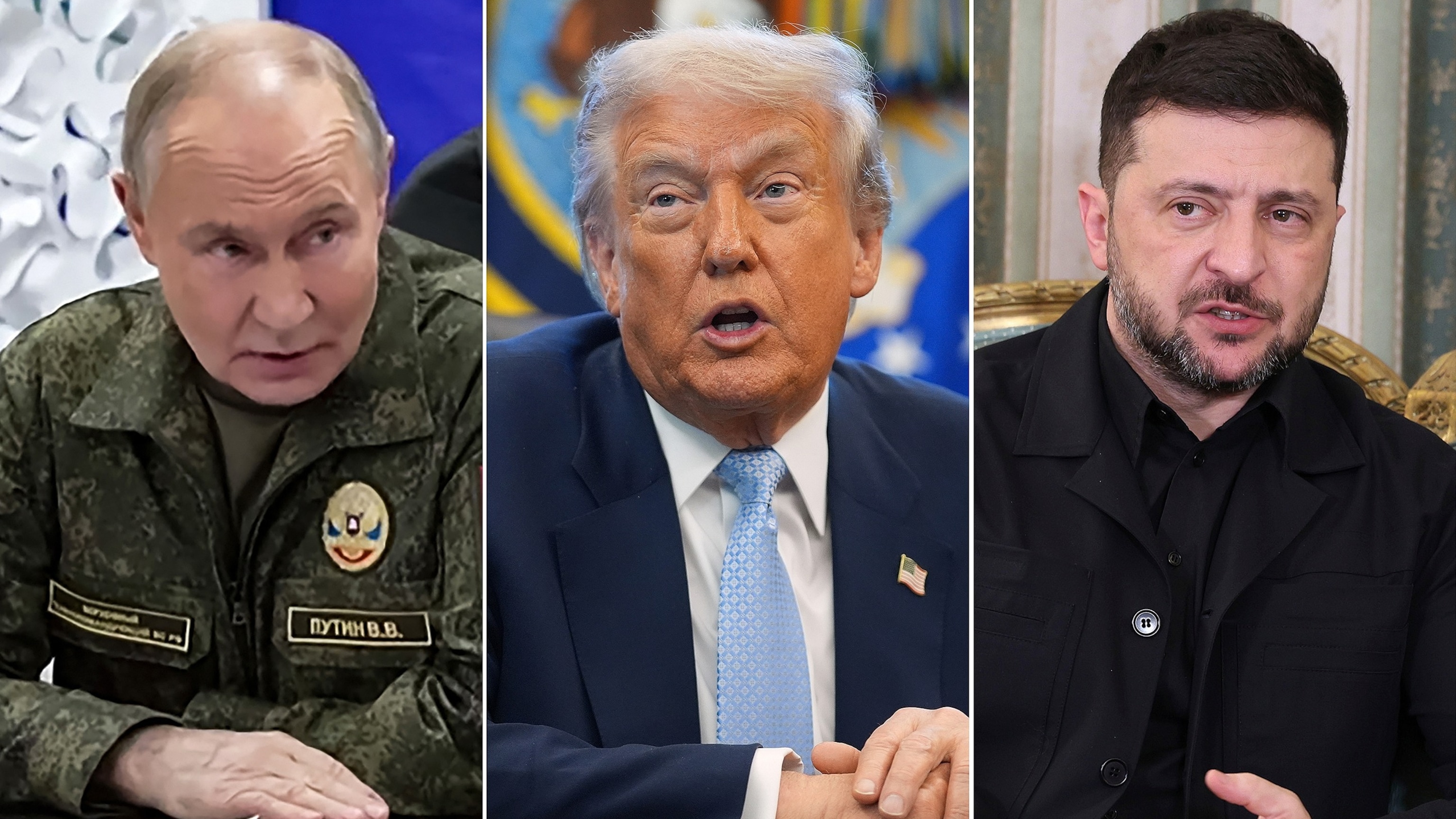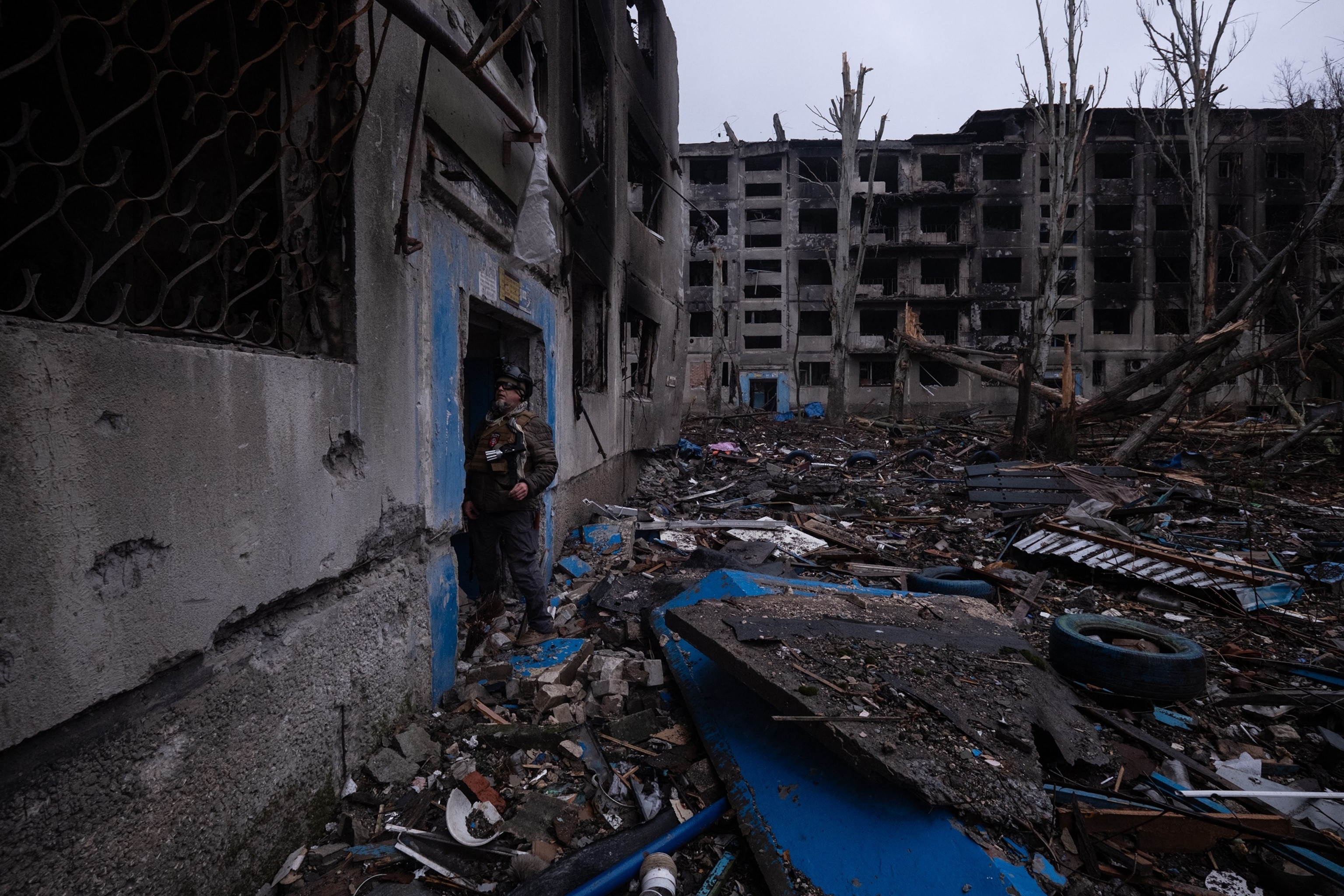LONDON — U.S., Ukrainian and European officials gathered in Switzerland on Sunday for talks on the contentious American-Russian peace plan put to Kyiv this week, with terms critics say constitute a Ukrainian capitulation.
A U.S. delegation that includes Army Secretary Daniel P. Driscoll, Secretary of State Marco Rubio and envoy Steve Witkoff will meet with Ukrainian officials in Geneva, a top U.S. official told ABC News Saturday.
A U.S. official told ABC News that Driscoll held “good meetings” with the Ukrainian delegation on Saturday night, which the official described as “positive and constructive.” Sunday afternoon will see more formal engagements between the delegations, the official said.
Andriy Yermak, the head of Ukrainian President Volodymyr Zelenskyy’s office and the leader of Kyiv’s delegation in Geneva, said in a post to social media that the Ukrainian group was “in a very constructive mood” as it began meetings with European officials.
A U.S. official told ABC News that there are plans for the U.S. delegation to hold a separate meeting with a Russian delegation. No details were provided about the location of the planned meeting with the Russians.
A plane believed to be transporting a U.S. delegation including Secretary of State Marco Rubio, lands at Geneva airport, in Switzerland, on Nov. 23, 2025.
Valentin Flauraud/AFP via Getty Images
The U.S. has threatened Ukraine with a complete halt to all assistance if Kyiv does not agree to the proposed deal, a high-ranking Ukrainian official close to the matter told ABC News on Sunday.
This halt would include the supply of air defense missiles, as well as intelligence sharing and all other commitments related to weapons deliveries and support from the U.S., the official said.
In a post to social media, Zelenskyy urged foreign partners to further strengthen Ukraine’s air defenses, as long-range nightly Russian strikes continue. On Saturday night into Sunday morning, Russia launched 98 drones into Ukraine, according to the Ukrainian air force. Sixty-nine of the craft were shot down or suppressed.
“In parallel with the diplomatic track, we must do everything to strengthen our defense against such wicked Russian attacks,” Zelenskyy wrote. “It is extremely important to speed up the implementation of all our agreements with partners regarding air defense systems and missiles for them.”
The U.S.-proposed 28-point peace plan was drafted in coordination with the Kremlin and with input from Rustem Umerov, the secretary of Ukraine’s National Security and Defence Council.

Rescue workers clear the rubble of a residential building which was heavily damaged by a Russian strike in Ternopil, Ukraine, on Nov. 21, 2025.
Vlad Kravchuk/AP
The plan includes a number of maximalist demands that the Kremlin has long demanded and that have been previously dismissed as non-starters for Kyiv, including that Ukraine cut its armed forces by more than half and cede swaths of territory not yet occupied by Russia.
Ukraine would also be forbidden from possessing long-range weapons, while Moscow would retain virtually all the territory it has occupied — and receive some form of recognition of its 2014 seizure of Crimea under the latest proposed U.S. plan.
Russian President Vladimir Putin said during a meeting of his Security Council on Friday that the Kremlin had received the proposal. “I believe that it could also form the basis for a final peace settlement, but this text has not been discussed with us in detail,” Putin said.
“I believe the reason is the same: the U.S. administration has not yet managed to secure the agreement of the Ukrainian side, as Ukraine is opposed to it,” Putin added. “Apparently, Ukraine and its European allies are still under the illusion that they can inflict a strategic defeat on Russia on the battlefield.”
In an address to the nation on Friday, Zelenskyy said Ukraine is facing “one of the most difficult moments in our history” and that Ukraine in the coming days may have to choose between “dignity” or the “risk of losing a key partner,” meaning the U.S.
He promised to “work calmly” and quickly with the U.S. on the plan and to search for “constructive solutions.” He added, “I will present arguments, I will persuade, I will offer alternatives.”

Russia’s President Vladimir Putin in Russia, Nov. 20, 2025, President Donald Trump in Washington, Nov. 17, 2025 and Ukrainian President Volodymyr Zelenskyy in Athens, Greece, Nov. 16, 2025.
AFP via Getty Images/AP
U.S. President Donald Trump suggested on Saturday that there is room for further negotiation. Asked by reporters whether this was his last offer, Trump replied, “No.”
“We’d like to get to peace,” Trump said. “One way or another we’ll get it ended.”
On Saturday, a bipartisan group of senators said they were told by Rubio in a phone call that the 28-point plan was developed by Russia, not the U.S.
In a statement on social media Saturday evening, Rubio denied the senators’ claims, asserting “the peace proposal was authored by the U.S.”
Rubio did not directly respond to the senators’ characterization of his message to them.
Rubio described the proposal as “a strong framework for ongoing negotiations,” adding, “It is based on input from the Russian side. But it is also based on previous and ongoing input from Ukraine.”

This handout photograph, taken on Nov 12. 2025, and released on Nov. 15, 2025 by the press service of the 93rd Kholodnyi Yar Separate Mechanized Brigade of the Ukrainian Ground Forces, shows a Ukrainian serviceman in the town of Kostyantynivka, Donetsk region.
Iryna Rybakova/93RD SEPARATE MECHANIZED BRIGADE
In a statement, Republican Sen. Mike Rounds said the administration’s peace efforts are “relying on input from both Russia and Ukraine.”
Polish Prime Minister Donald Tusk expressed his skepticism of the proposed plan in a post to X on Sunday, in which he said the “leaders of Europe, Canada and Japan” had “declared our readiness to work on the 28-point plan despite some reservations.”
“However, before we start our work, it would be good to know for sure who is the author of the plan and where was it created,” Tusk said.
In an open letter sent to ABC News on Sunday, a group of 48 current and former officials and lawmakers from Europe and Ukraine wrote to Trump warning that “any appeasement of Russia” would be “morally reprehensible and an outrage against human decency.”
“Strong American leadership is the only hope,” the letter added. “A cowed America can never be great again, a cowed America can never be first. America is only great and first when it steadfastly stands for freedom, democracy, respect for human rights and rule of law.”
One of the signatories — Oleksandr Merezhko, a member of the Ukrainian parliament and the chair of the body’s foreign affairs committee — told ABC News that of all 28 points in the U.S.-proposed deal, only the clause confirming Ukraine’s sovereignty gave him reason for optimism.
ABC News’ Oleksiy Pshemyskiy, Somayeh Malekian, Christopher Boccia and Luis Martinez contributed to this report.
